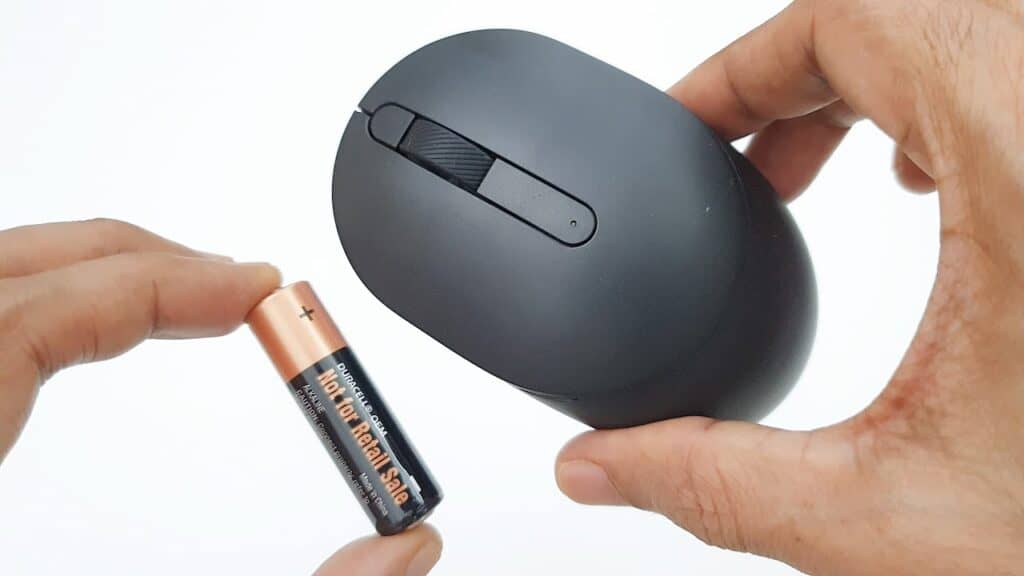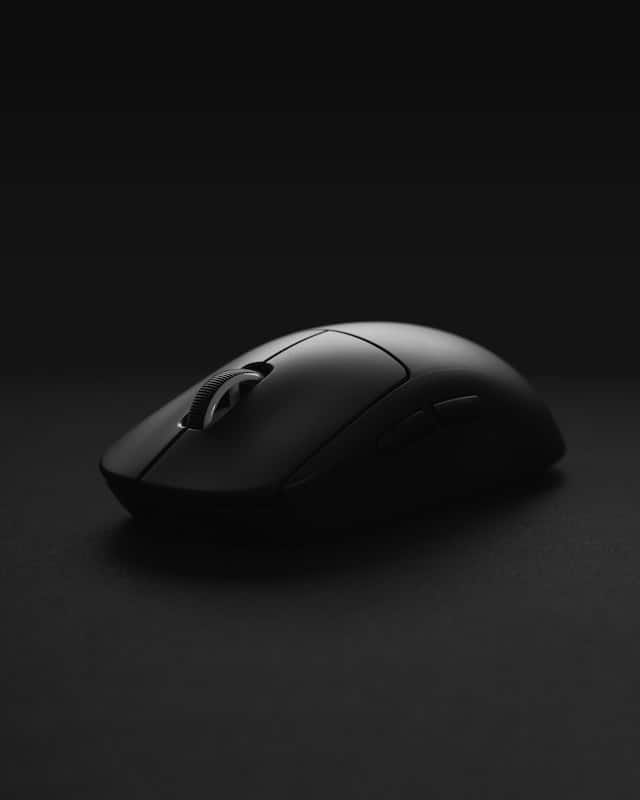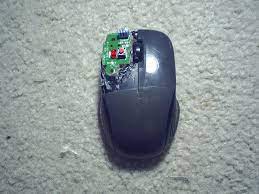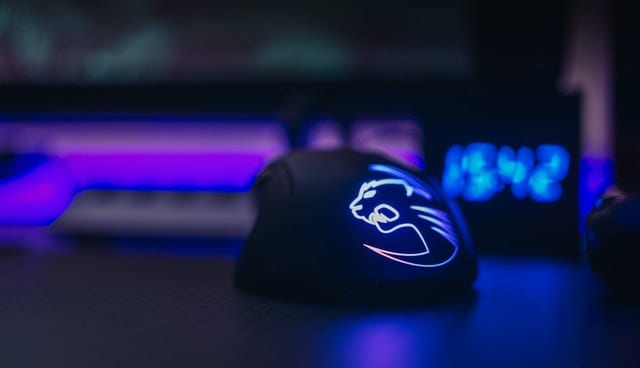If you own a computer peripheral like a wireless mouse, remember that they will have a certain lifespan, sometimes shorter.
In fact, a wireless mouse is likely to last a few years before giving in, requiring a replacement.
A wireless mouse typically lasts anywhere from 2 to 5 years of service, depending on the manufacturer’s quality, gradual wear and tear, and how you handle the device. However, you can always extend its life for a few more years.

Modern mice do not guarantee a longer lifespan but ensure increased flexibility, durable battery power, and comfort.
Therefore, the ease of use should be of more concern than the durability and longer lifespan.
Read on to figure out how long wireless mice last and whether you can extend their lives.
Table of Contents Show
Does Wireless Mouse Wear Out?
Like any computer peripheral or device, wireless Mouse also wears out after they reach their lifespan or a bit early due to wear and tear.
Remember, a wireless mouse is a standard scrolling device with parts similar to other optical mice but with an exception.
It runs on a portable battery that can be charged and replaced, requiring replacement once they reach its lifespan.

However, the device will last until all the parts are intact and have not significantly worn out.
In fact, it may last longer than a wired mouse because the latter succumbs to mechanical wear from cord breakage or other problems.
The peripheral may wear out from regular use, breakage from falling, and worn-out internal parts.
For instance, dropping and misaligning a wireless mouse’s lens and LED can cause it to degrade.
A single small drop won’t likely harm the wireless Mouse, but several repeated larger drops could degrade the Mouse’s performance.
Furthermore, dust accumulation in the enclosure can degrade your wireless mouse peripheral’s performance.
How Long does Wireless Mouse Last?
A wireless mouse can degrade if you drop it, scratch the optical lens, misalign the LED, burn semiconductors, or break the parts, shortening its lifespan.
According to experienced users, a wireless mouse usually lasts about 2 to 3 years or even more, depending on the quality of the peripheral and regular usage.
Some renowned manufacturers life the RAZER guarantees that their wireless Mouse will last up to 5 to 10 years.

However, the mice’s lifespan would always come down to personal usage or wear and tear, especially gaming mouse, which witnesses a lot of wear and tear, leading to a shorter lifespan than the regular Mouse.
Let us look at different types of wireless mice and how long they would generally last.
| Mouse Types | Specification | Life Span |
|---|---|---|
| RF Wireless Mouse | RF stands for radio frequency, where the RF transmitter is located inside the device, which transmits the signal to the receiver (USB) plugged into the computer. Breakage or faulty transmitter means the end of the mouse's life. | 2-6 years |
| Bluetooth Mouse | It connects directly to the computer with a Bluetooth driver. It operates via infrared signals and may stop working if the IR signal transmitter is broken or faulty. | 1-5 years |
| Optical Mouse | The optical mice connect to the computer via infrared technology, where you would see a red light glowing. It employs a receiver that is connected to the PC via USB. | 1-5 years |
The problem with most wireless mice is that the manufacturers do not allow replacing the parts when they stop working. Therefore, you are required to replace the entire unit when it stops working.
How do I Know if my Wireless Mouse is Dying?
If you are a regular mouse user, you will probably notice something different with your Mouse when it stops working.
Glitches, incorrect response, slacking performance, or the device automatically turning off are signs that your Mouse is dying.
Check out these tell-tale signs if you wonder whether your Mouse is dying or experiencing a problem.
1. Lagging Cursor
If you witness the mouse cursor lagging or slowing, you should know the sensor has a problem.
It may usually occur when the optical sensor is filled with grease or smudges that may hamper smoother movement.
However, you should know that your Mouse is giving in if the problem persists despite cleaning the sensor.

The slow cursor movements will not become a nuisance but also affect your productivity. Sometimes, the mousing surface may also repel the drag effect, leading to a lagging cursor.
Therefore, check whether the sensor is dirty or the wrong mouse pad is before deciding to replace your Mouse.
2. Pausing Suddenly
One of the significant giveaways of a dying mouse is that it stops working at random intervals or suddenly pauses.
Sometimes, the slower processing power of the PC may cause a sudden pause in operations, including paused cursor movement.
However, this problem only persists with a slower PC. Your Mouse is dying if it may happen when connecting the peripheral to another PC. You would notice the tracking laser light going off.
Try fixing the issue by turning the peripheral off and on may work most of the time, but an older or outdated peripheral is less likely to be fixed.
3. Freezing Cursor
When the Mouse nears its end, the cursor will start to freeze between the operations.
Check whether the Mouse’s battery is completely depleted, which may also cause a freezing cursor.
If you are familiar with an overworked PC, you would know that it may also cause the cursor to freeze entirely.
You can try restarting the PC, upgrading the memory, and reinstalling the mouse driver. However, if the freezing continues even after solving these problems, you should know it is nearing its end.
4. Random Cursor Movement
It may be common to witness random cursor movement, which may feel like your PC has been hacked.
The cursor will move in the other direction or randomly when you move the Mouse.
The problem may persist even when you leave your Mouse idle. It could also occur when you have not cleaned your mousepad for a long time; therefore, start cleaning the mousepad.
However, replacing the peripheral will be better if the problem persists.
5. Buttons Stopped Working
Have you witnessed your Mouse’s clicker or scrolling stop working? You should know that your Mouse is either overworked or nearing its end.
A standard mouse has two buttons, clickers, and scrolling, but a gaming mouse may have many different buttons.
Talking about a standard mouse, the buttons will cease to function altogether, indicating it is dying.

If one of the buttons in the gaming mouse becomes unresponsive, it may indicate that the button has given in.
You can replace the buttons on your gaming mouse, but doing the same with the standard Mouse may not be possible, requiring a complete unit replacement.
When to Replace Your Computer Mouse?
You need not immediately replace your Mouse when it starts showing the problem.
Most of the time, minor problems can be fixed with a software tweak, a change of parts, or some cleaning.
Here are some tell-tale signs when you need to replace your Mouse altogether.
- Significant visible cracks or holes on the peripherals may compromise its functionality.
- The optical sensor does not respond when switched on.
- The RF or Bluetooth adapter inside the Mouse stops responding.
- Either the clicker on your Mouse sticks down when pressed or does not respond to the press.
- The random cursor movement remains prevalent after cleaning the sensor and changing the mousepad.
- The Mouse stops sliding smoothly across the mouse pad due to sticker damage.
- The scroll wheel does not respond; click or scroll.
Helpful Tips to Expand the Life of Wireless Mouse
Getting a cheap wireless mouse may save you a lot of money, but it will also knock off a few years of your Mouse.
Similarly, wireless mice kept unkempt may also mean a shorter lifespan.
Here are a few proven tips to keep your wireless Mouse in good condition to extend its life.
1. Buy a Branded Mouse
A branded wireless mouse will last anywhere from 3 to 5 years or more if you care for it.
Remember, a branded mouse means quality and durable parts, usually lasting longer than regular parts.
Therefore, do not hesitate to buy a branded wireless mouse from Razer, Logitech, and other renowned brands.
2. Regularly Clean the Mouse
An unkempt mouse will easily knock off a few years of a good mouse, including branded one.
It may be a good idea to clean the mouse sensors with the appropriate cleaning agent every few days.

Similarly, clean the Mouse’s underside with the electronic cleaner to remove the grease and grim, which may prevent smooth movement.
However, do not forget to clean the mousepad or surface to remove dirt that may quickly get into the Mouse’s sensors.
Read more; How to Clean a Desk Mat Properly?
3. Turn off the Mouse
You should turn off your wireless Mouse when not using it, including during inactivity or nighttime, to prevent the battery from draining.
Keeping the peripheral switched on may take up a significant amount of energy.
It will encourage the continued use of BlueTooth, registering even slight movements, which adds to the significant device’s active time.
Therefore, the battery will drain pretty quickly and deplete your peripherals’ overall lifespan.
Read more about turning off your wireless mouse to extend its life
3. Invest in a Good Mousepad
Quality and a durable mousepad is another concern because most wireless mouse struggle with a poor-quality mousepad surface.
The mousepad is wrong if you deal with mouse cursor problems and smoother movement.
Invest in an excellent mousepad to prevent the risk of damaging the sensor.
Here is an article to help you out; What is the best mousepad material?
4. Choose the Task Intensive Mouse
Never use a regular wireless mouse for an intensive gaming experience because it will hardly stand excessive use and abuse.
A regular mouse has a shorter lifespan compared to a quality gaming mouse.
By using a task-intensive mouse, you can ensure your peripheral does not quit midway.
Read more: Can you use a gaming mouse for regular office work?

Frequently Asked Questions About Wireless Mouse
Does a Wireless Mouse have Longer Lifespan than Wired Mouse?
It would depend on the usage and quality of the peripheral.
A wired mouse is more stable than a wireless mouse and may last 5 to 10 years.

On the other hand, a wireless mouse will last up to 7 years when correctly used.
However, the wired Mouse is more prone to damage due to wire breakage and malfunctioning, requiring immediate replacement.
How Many Clicks does an Average Wireless Mouse Last?
A quality mouse from Logitech or Razer will offer anywhere from 10 million to 50 million clicks. Even with regular usage, your Mouse will last 3-4 years.
Similarly, a gaming mouse will offer more average clicks than a regular mouse, making it more durable and long-lasting.
Conclusion
When you invest in a quality and durable peripheral, a wireless mouse will last 2 to 5 years.
However, you can try extending its life by lessening the damage, cleaning it regularly, and investing in a task-intensive device.
Follow this guide to discover whether your wireless Mouse is dying and how to extend its life.


